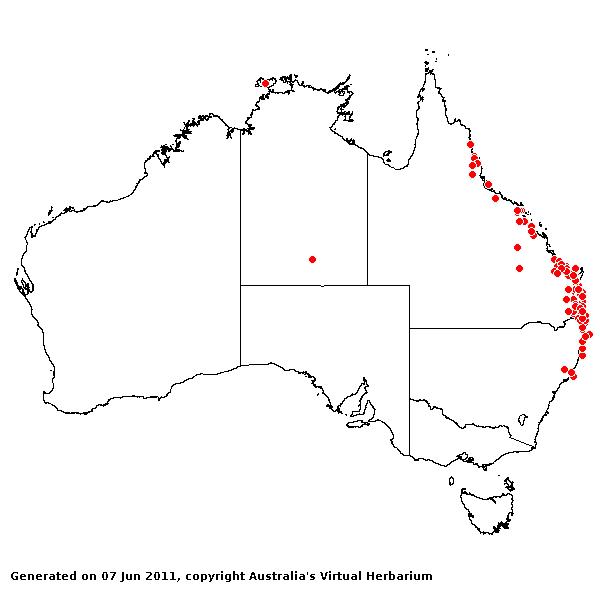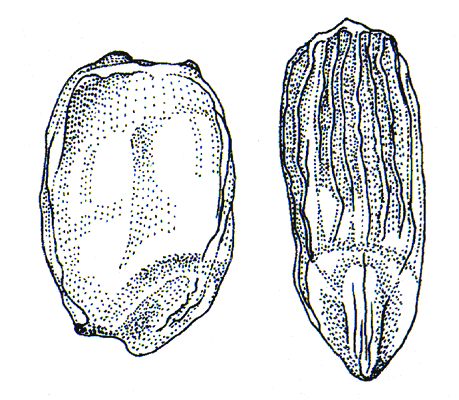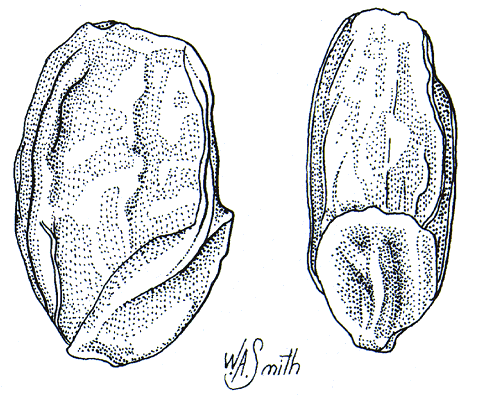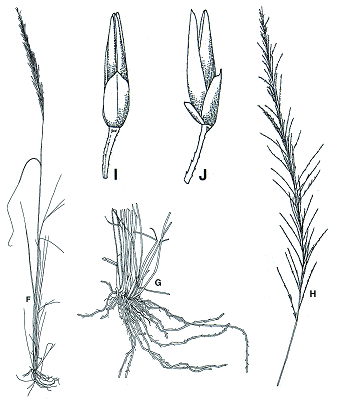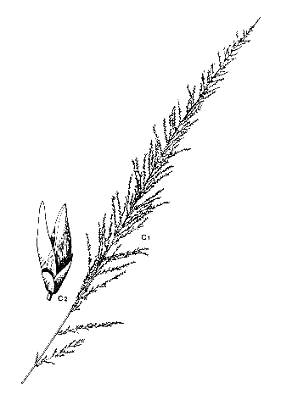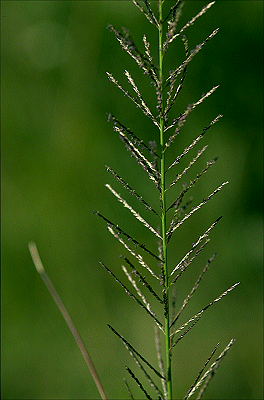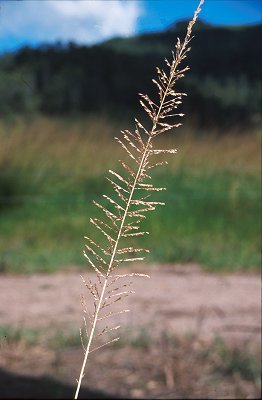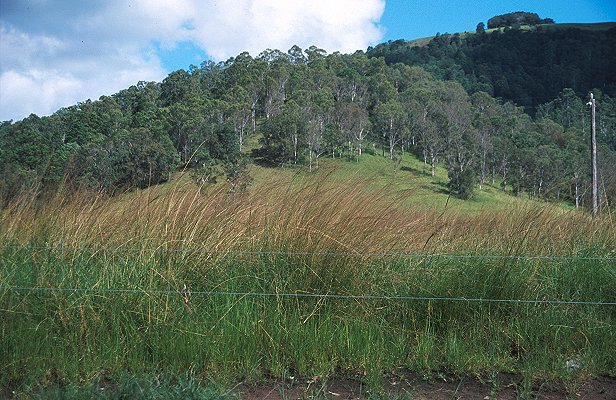Sporobolus pyramidalis* Beauv. Fl.Oware 2: 36, t.80 (1816).
Classification. (GPWG 2001) : Subfamily Chloridoideae. Cynodonteae.
Type of Basionym or Protologue Information: HT: Palisot de Beauvois s.n., Nigeria (G (photo, BRI, K); IT: P?).
Key references (books and floras): [2002] D.Sharp & B.K.Simon, AusGrass, Grasses of Australia, [2008] S.W.L.Jacobs, R.D.B.Walley & D.J.B.Wheeler, Grasses of New South Wales (379).
Illustrations: [2008] S.W.L.Jacobs, R.D.B.Whalley & D.J.B.Wheeler, Grasses of New South Wales, 4th edn (378).
Habit. Perennial. Culms erect, 90–170 cm tall, 2–5 mm diam. Lateral branches simple. Ligule a fringed membrane or a fringe of hairs, 0.2–0.3 mm long. Leaf-blades filiform or linear, flat or convolute, 20–70 cm long, 3–10 mm wide.
Inflorescence. Inflorescence compound, a panicle. Panicle pyramidal, 20–45 cm long, contracted about primary branches.
Spikelets. Spikelets pedicelled. Fertile spikelets 1-flowered, comprising 1 fertile floret(s), without rachilla extension, lanceolate, terete, 1.7–2.2 mm long.
Glumes. Glumes similar, thinner than fertile lemma. Lower glume lanceolate or oblong, without keels, 0 -nerved. Upper glume lanceolate or oblong, 0.5–0.8 mm long, hyaline, without keels, 1 -nerved.
Florets. Fertile lemma 1.7–2 mm long, without keel, 1 -nerved. Palea 2 -nerved. Palea apex lobed. Anthers 3. Grain 0.8–1 mm long.
Continental Distribution: Africa, Temperate Asia, Australasia, Pacific, North America, and South America.
Australian Distribution: Northern Territory, Queensland, New South Wales.
Northern Territory: Central Australia South. Queensland: Moreton, Wide Bay, Cook, North Kennedy, South Kennedy, Port Curtis, Leichhardt, Burnett. New South Wales: North Coast.
Notes. Together with S. natalensis comprises the pasture grass weed Giant Ratstail Grass.
Differs from S. natalensis by the upper glume being at about a third the spikelet length and truncate to erose.
Introduced; mainly from Cooktown to central coastal N.S.W.; Africa and the Pacific region. Flowers all year.

